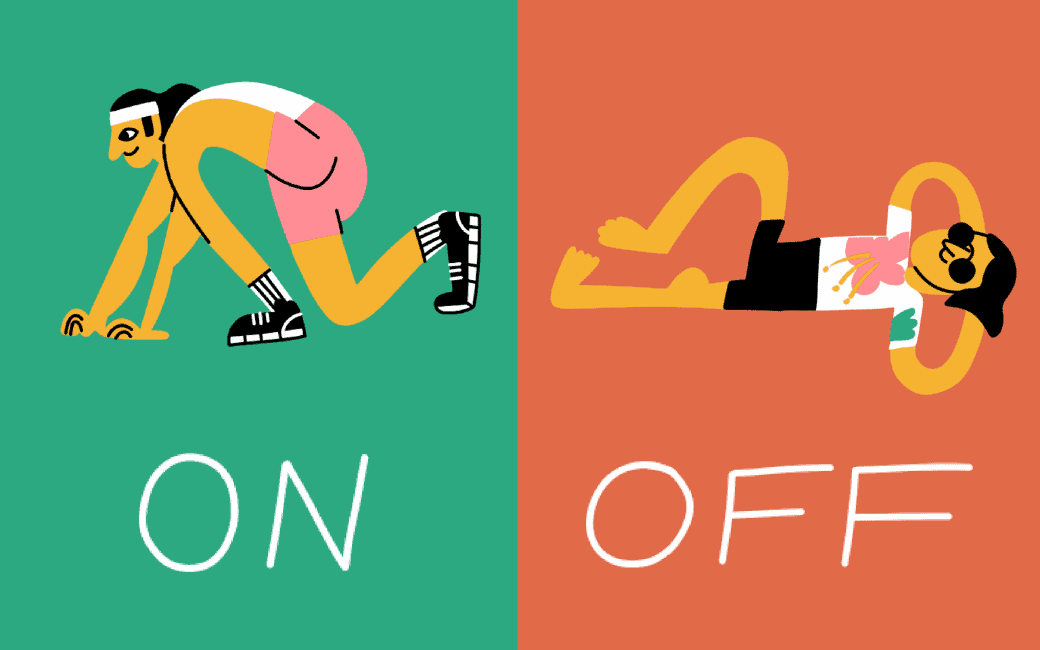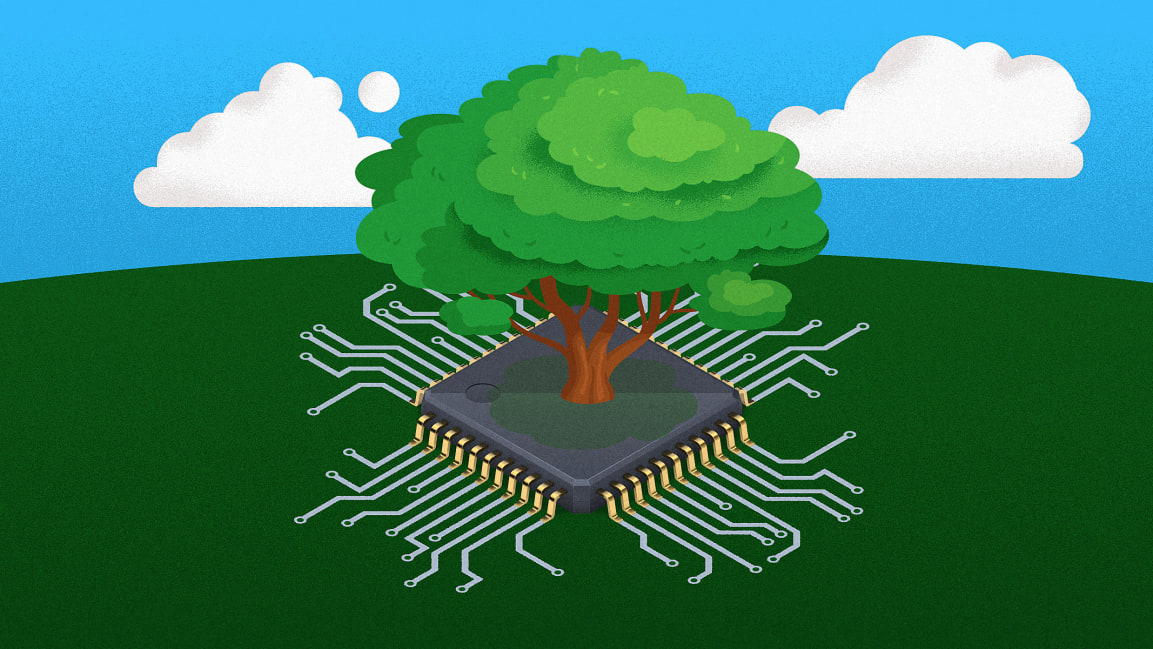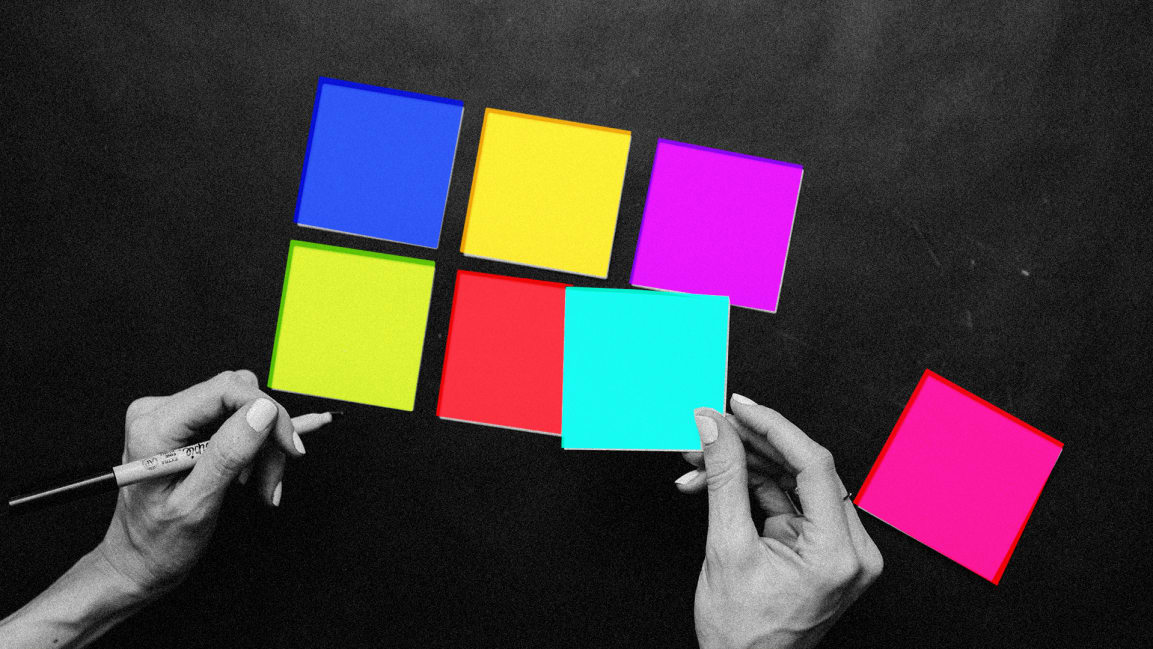   
CEO Picks - The most popular editorials that have stood the test of time!
The Power of Talk: Who Gets Heard and Why
 The head of a large division of a multinational corporation was running a meeting devoted to performance assessment. Each senior manager stood up, reviewed the individuals in his group, and evaluated them for promotion. Although there were women in every group, not one of them made the cut. One after another, each manager declared, in effect, that every woman in his group didn't have the self-confidence needed to be promoted. The division head began to doubt his ears. How could it be that all the talented women in the division suffered from a lack of self-confidence? The head of a large division of a multinational corporation was running a meeting devoted to performance assessment. Each senior manager stood up, reviewed the individuals in his group, and evaluated them for promotion. Although there were women in every group, not one of them made the cut. One after another, each manager declared, in effect, that every woman in his group didn't have the self-confidence needed to be promoted. The division head began to doubt his ears. How could it be that all the talented women in the division suffered from a lack of self-confidence?
Continued here
|
How to Turn Off Harmful Stress Like a Switch
 Stress comes from anxiety about future problems and the lack of control over them. This article introduces a few surprising techniques to handle stress. Stress comes from anxiety about future problems and the lack of control over them. This article introduces a few surprising techniques to handle stress.
Let's play a game of "would you rather."
Would you rather speak in front of 500 people for an hour or be stuck in an elevator with your ex?
Would you rather get a cavity drilled or be forced to take a four-hour Zumba class?
Would you rather lose your car keys before work or lose your internet connection before an online meeting?
None of these options are good, but they all have something in common: they invoke stress.
What stresses you out? How do you deal with that dreaded feeling? And did you know there's a bullet-proof method for disarming stress?
Continued here
|
� | � |  | How I Overcame the Fear of Being My Own Boss
 These are some lessons I learned from Robert Kiyosaki's "Before You Quit Your Job" before I started a business. These are some lessons I learned from Robert Kiyosaki's "Before You Quit Your Job" before I started a business.
"Life is the sum of our decisions" - Albert Camus.
One of the great obstacles I faced in deciding to walk away from my job to become an entrepreneur was fear. Fear of venturing, fear of being singled out, fear of failing. And probably the biggest: not being sure that, on the 1st, I was going to receive a specific payment.
Terror of thinking that months or even years could go by without receiving a single penny.
I felt judged by the stereotype of that guy in an expensive suit and a tight tie telling me that I was not going to achieve anything without having an MBA (sounds more complex and interesting in English) and a high position at some renowned firm.
Continued here
|
10 Powerful Habits That Will Help You Become the Best Version of Yourself
 Get the toxicity out of your life. Get the toxicity out of your life.
These are my top 10 habits I've developed over the last 33 years after studying entrepreneurs, executives from Fortune 1000 companies, and my own personal experiences:
1. Every morning, make a list of the 3 most important things you have to do for the day that will make the largest impact. This helps to cut out the noise and forces you to prioritize. For example, the top 3 things on my list today were to host a training, attend two executive meetings and write 2 articles. I completed all 3. #Priorities
2. Use the 10 years test - When you run into tough situations, often times it will seem like a disaster.
Continued here
|
| � |  | This cargo ship cuts emissions 90% using an old-fashioned trick: Sails
 Using sails to transport goods? An idea so old it's new again. Using sails to transport goods? An idea so old it's new again.
The tens of thousands of cargo ships that travel the world's oceans - carrying everything from jeans and smartphones to cars and bananas - collectively emit more CO2 than most countries. A new ship called the Oceanbird, in development now, is designed to help: With huge, wing-like sails, it runs on wind power, but will be able to cross the Atlantic in less than two weeks, only a few days longer than a ship running on fossil fuels.
For the shipping industry, which is racing to figure out how to cut emissions in line with the goals of the Paris climate agreement, the design has advantages compared to other potential solutions. Unlike cars, ships can't easily shift to electric power, since the massive size of a cargo ship means that it would need to be filled with batteries to run, leaving little room for cargo. Ships can run on liquified natural gas, but that would only partially reduce emissions. Ammonia fuel doesn't pollute as it burns but is polluting to produce. Wind energy can avoid all those challenges.
Continued here
|
Everything from smartphones to housing can be built without waste. Here's how
 To create a truly circular economy, we need to take a page from the natural world. To create a truly circular economy, we need to take a page from the natural world.
The rings of a tree tell a story. A story about the life of the tree, and the environment in which it grew. But what is humanity's story? Will it be a blackened layer of fossilized smartphones in the footnotes of geology? Or will it be a story like the Daintree rainforest in Australia - one of the oldest surviving forest ecosystems in the world whose current inhabitants boast a direct lineage thought to be over 100 million years old? To envision a 100-million-year-long story for humanity, we must imagine a world where every generation returns the materials they use to the soil, air, and oceans in a way that enables future generations to use that material too. A world without waste or pollution. The transition to such a system - called a circular economy - depends greatly on science.
Continued here
|
Have You Taken the Difficult Person Test?
 Personality quizzes have been popular since they were invented, but this particular one - the Difficult Person Test - may just be one of the most unflattering tests on the internet. And yet, it went viral earlier this year. Why? Personality quizzes have been popular since they were invented, but this particular one - the Difficult Person Test - may just be one of the most unflattering tests on the internet. And yet, it went viral earlier this year. Why?
- The quiz presents a series of first-person statements and asks users to what degree they agree with them. In the end it measures seven qualities: callousness, grandiosity, aggressiveness, suspicion, manipulativeness, dominance, and risk-taking.
- In this article, author Sulagna Misra looks into her own experience with the test and explores why she, and other people, are so curious about their dark traits.
- She speaks with an academic, a therapist, and the head of thought leadership at The Myers-Briggs Company to gain their insights.
Continued here
|
Try these 7 mental tactics for achieving long-term goals
 Did you know that 92% of people never actually achieve the goals they set out to meet? Understanding the psychology of why we psyche ourselves out can help you not be one of them. Did you know that 92% of people never actually achieve the goals they set out to meet? Understanding the psychology of why we psyche ourselves out can help you not be one of them.
Why is it so difficult to define, work toward, and achieve your long-term goals?
While it's easy to spend hours each day crossing off to-do list items and answering emails, those lofty and life-changing goals always seem to get left for someday.
But living without long-term goals is like going on a road trip without a map. You might get to see some nice scenery along the way, but you won't make it to your destination.
Even worse, knowing your long-term goals and still not working toward them makes it feel like you're wasting your time and can lead to so much unnecessary stress, anxiety, and even depression.
Instead, long-term goals give you focus and energy.
When you know the North Star that you're working toward, it's easier to stay motivated, kill procrastination, and prioritize the projects that really matter.
Continued here
|
| � |  | How to Motivate Yourself Daily
 My personal formula for consistent motivation. My personal formula for consistent motivation.
People often tell me it seems like I'm on the grind constantly. I write prolifically and consistently. I do work pretty much every day. I am motivated, but I'm not a productivity robot like you might think.
I don't work 12-14 hour days. In fact, I usually work about four hours per day. I don't do a ton of busywork throughout the day. Mostly, I do a small handful of things really well and consistently.
I'm not constantly peppy and upbeat like Mel Robbins or Brendon Bouchard. I still have off days. I'm human. But, in the grand scheme of things, I've managed to maintain a consistent level of motivation for a half-decade and used it to build a career and life that I love. More or less, I have a solid base-level of motivation on a day-to-day basis.
Before you tell yourself it isn't possible for you, just know that I used to be extremely lazy - cripplingly lazy. Those familiar with my work know the stories. You can turn the ship around, but you have to have a starting point and get momentum somehow. Let's talk about how to do that.
Continued here
|
Health Check: what are 'coffee naps' and can they help you power through the day?
 Caffeine and napping have something in common. Both make you feel alert and can enhance your performance, whether that's driving, working or studying. But some people are convinced that drinking a coffee before a nap gives you an extra zap of energy when you wake up. Caffeine and napping have something in common. Both make you feel alert and can enhance your performance, whether that's driving, working or studying. But some people are convinced that drinking a coffee before a nap gives you an extra zap of energy when you wake up.
How could that be? Is there any evidence to back the power of these so-called coffee naps? Or are we better off getting a good night's sleep?
Continued here
|
| � |  | The great free will debate
 Philosophers, theoretical physicists, psychologists, and others consider what or who is really in control. Philosophers, theoretical physicists, psychologists, and others consider what or who is really in control.
- What does it mean to have - or not have - free will? Were the actions of mass murderers pre-determined billions of years ago? Do brain processes trump personal responsibility? Can experiments prove that free will is an illusion?
- Bill Nye, Steven Pinker, Daniel Dennett, Michio Kaku, Robert Sapolsky, and others approach the topic from their unique fields and illustrate how complex and layered the free will debate is.
- From Newtonian determinism, to brain chemistry, to a Dennett thought experiment, explore the arguments that make up the free will landscape.
Continued here
|
Research: Adding Women to the C-Suite Changes How Companies Think
 It's well known that firms with greater gender diversity among senior leadership perform better. But what's less clear is why exactly that is. What are the specific mechanisms that drive the positive business outcomes associated with increasing the number of women in the C-suite? In this piece, the authors share new research that explores exactly how the addition of female executives shifts companies' strategic approach to innovation. Based on an analysis of more than 150 companies, the authors find that after women join the top management team, firms become more open to change and less open to risk, and they tend to shift from an M&A-focused strategy to more investment into internal R&D. In other words, when women join the C-suite, they don't just bring new perspectives - they actually shift how the C-suite thinks about innovation, ultimately enabling these firms to consider a wider variety of strategies for creating value. It's well known that firms with greater gender diversity among senior leadership perform better. But what's less clear is why exactly that is. What are the specific mechanisms that drive the positive business outcomes associated with increasing the number of women in the C-suite? In this piece, the authors share new research that explores exactly how the addition of female executives shifts companies' strategic approach to innovation. Based on an analysis of more than 150 companies, the authors find that after women join the top management team, firms become more open to change and less open to risk, and they tend to shift from an M&A-focused strategy to more investment into internal R&D. In other words, when women join the C-suite, they don't just bring new perspectives - they actually shift how the C-suite thinks about innovation, ultimately enabling these firms to consider a wider variety of strategies for creating value.
Continued here
|
| � |  | Organizing for the future: Nine keys to becoming a future-ready company
 To better organize for a postpandemic future, leaders should embrace nine imperatives that collectively explain "who we are" as an organization, "how we operate," and "how we grow." To better organize for a postpandemic future, leaders should embrace nine imperatives that collectively explain "who we are" as an organization, "how we operate," and "how we grow."
The pressure to change had been building for years. Well before the COVID-19 pandemic, senior executives routinely worried their organizations were too slow, too siloed, too bogged down in complicated matrix structures, too bureaucratic. What many leaders feared, and the pandemic confirms, is that their companies were organized for a world that is disappearing - an era of standardization and predictability that's being overwritten by four big trends: a combination of heightened connectivity, lower transaction costs, unprecedented automation, and shifting demographics
Continued here
|
Want to learn how things really work at your new job? Talk to the people at the bottom
 New research shows that people of all ranks look to low-level peers for information about organizational social norms. New research shows that people of all ranks look to low-level peers for information about organizational social norms.
What are typical work hours here?
Do teammates do things together outside work?
If I have an idea for changing something, what's the best way to raise it?
Those are questions a new member of any organizational team might have.
How they get those questions answered has been a topic of interest to Dale T. Miller, Stanford Graduate School of Business (GSB) professor of organizational behavior; Jennifer Dannals, who received her PhD from Stanford GSB in 2018 and is now an assistant professor at the Tuck School of Business at Dartmouth; and Emily Reit, a current Stanford GSB doctoral student.
"A common assumption is that people just copy the behavior of the highest-ranking leaders in a group, rather than paying attention to anyone else," Dannals says. "That's always rubbed me the wrong way, partly because I hadn't done that as a PhD student within the academic hierarchy. I believed lower-ranked people matter more in our perceptions of social norms."
Continued here
|
| � |  | Artificial intelligence can now design new antibiotics in a matter of days
:format(webp)/cdn.vox-cdn.com/uploads/chorus_image/image/69070670/antibiotics_time_GettyImages_1309960968.0.jpg) IBM's new AI system could also help design treatments for Covid-19. IBM's new AI system could also help design treatments for Covid-19.
Imagine you're a scientist who needs to discover a new antibiotic to fight off a scary disease. How would you go about finding it?
Typically, you'd have to test lots and lots of different molecules in the lab until you find one that has the necessary bacteria-killing properties. You might find some contenders that are good at killing the bacteria only to realize that you can't use them because they also prove toxic to humans. It's a very long, very expensive, and probably very aggravating process.
But what if, instead, you could just type into your computer the properties you're looking for and have your computer design the perfect molecule for you?
That's the general approach IBM researchers are taking, using an AI system that can automatically generate the design of molecules for new antibiotics. In a new paper, published in Nature Biomedical Engineering, the researchers detail how they've already used it to quickly design two new antimicrobial peptides - small molecules that can kill bacteria - that are effective against a bunch of different pathogens in mice.
Continued here
|
Putting People at the Centre of Operations
 The field of operations management has deep roots in developing effective processes for people. How can we encourage further growth in this area? The field of operations management has deep roots in developing effective processes for people. How can we encourage further growth in this area?
Operations management (OM), which is often associated with processing widgets and information, has permeated the workplace to such a degree that the HR function at companies like Google is now known as "People Operations".
As the nature of work has changed over the past generation, becoming more service-oriented, knowledge-intensive, and rapidly changing, a growing stream of OM research has shifted away from manufacturing to managing people - individuals, teams and organisations.
People affect processes and processes affect people. These linkages between people and processes impact performance. People-centric operations (PCO) is how people affect the performance of operational processes; it has always been part of OM but not previously explicitly defined.
Continued here
|
| � |  | To Be More Successful, Follow Elon Musk's Advice and Redefine the Word 'Rude'
 It's time to rethink what counts as rudeness at work, according to both the Tesla boss and a leadership coach. It's time to rethink what counts as rudeness at work, according to both the Tesla boss and a leadership coach.
When The New York Times recently asked readers to reflect on the lessons they would take from the pandemic, one Georgia woman responded: "I am not going to try to be polite anymore. I am hopefully going to become a less behaved, less likable, ballsier, more outspoken, more dangerous woman."
Less polite is generally not something most of us consider a good thing, but according to both Elon Musk and leadership coach and TED speaker Madeleine de Hauke, using a global health catastrophe to rethink your ideas around what exactly it means to be rude might not only help you lead a more daring life, but also help you get more done with less stress.
You can't be too kind, but you can be too polite.
Continued here
|
Our Brain Typically Overlooks This Brilliant Problem-Solving Strategy
 People often limit their creativity by continually adding new features to a design rather than removing existing ones People often limit their creativity by continually adding new features to a design rather than removing existing ones
For generations, the standard way to learn how to ride a bicycle was with training wheels or a tricycle. But in recent years, many parents have opted to train their kids with balance bikes, pedalless two-wheelers that enable children to develop the coordination needed for bicycling - a skill that is not as easily acquired with an extra set of wheels.
Given the benefits of balance bikes, why did it take so long for them to replace training wheels? There are plenty of other examples in which overlooked solutions that involve subtraction turn out to be better alternatives. In some European cities, for example, urban planners have gotten rid of traffic lights and road signs to make streets safer - an idea that runs counter to conventional traffic design.
Continued here
|
| � |  |
 | TradeBriefs Publications are read by over 10,00,000 Industry Executives |
 The head of a large division of a multinational corporation was running a meeting devoted to performance assessment. Each senior manager stood up, reviewed the individuals in his group, and evaluated them for promotion. Although there were women in every group, not one of them made the cut. One after another, each manager declared, in effect, that every woman in his group didn't have the self-confidence needed to be promoted. The division head began to doubt his ears. How could it be that all the talented women in the division suffered from a lack of self-confidence?
The head of a large division of a multinational corporation was running a meeting devoted to performance assessment. Each senior manager stood up, reviewed the individuals in his group, and evaluated them for promotion. Although there were women in every group, not one of them made the cut. One after another, each manager declared, in effect, that every woman in his group didn't have the self-confidence needed to be promoted. The division head began to doubt his ears. How could it be that all the talented women in the division suffered from a lack of self-confidence? Stress comes from anxiety about future problems and the lack of control over them. This article introduces a few surprising techniques to handle stress.
Stress comes from anxiety about future problems and the lack of control over them. This article introduces a few surprising techniques to handle stress. These are some lessons I learned from Robert Kiyosaki's "Before You Quit Your Job" before I started a business.
These are some lessons I learned from Robert Kiyosaki's "Before You Quit Your Job" before I started a business.  Get the toxicity out of your life.
Get the toxicity out of your life. Using sails to transport goods? An idea so old it's new again.
Using sails to transport goods? An idea so old it's new again.  To create a truly circular economy, we need to take a page from the natural world.
To create a truly circular economy, we need to take a page from the natural world. Personality quizzes have been popular since they were invented, but this particular one - the Difficult Person Test - may just be one of the most unflattering tests on the internet. And yet, it went viral earlier this year. Why?
Personality quizzes have been popular since they were invented, but this particular one - the Difficult Person Test - may just be one of the most unflattering tests on the internet. And yet, it went viral earlier this year. Why?  Did you know that 92% of people never actually achieve the goals they set out to meet? Understanding the psychology of why we psyche ourselves out can help you not be one of them.
Did you know that 92% of people never actually achieve the goals they set out to meet? Understanding the psychology of why we psyche ourselves out can help you not be one of them. Caffeine and napping have something in common. Both make you feel alert and can enhance your performance, whether that's driving, working or studying. But some people are convinced that drinking a coffee before a nap gives you an extra zap of energy when you wake up.
Caffeine and napping have something in common. Both make you feel alert and can enhance your performance, whether that's driving, working or studying. But some people are convinced that drinking a coffee before a nap gives you an extra zap of energy when you wake up.  Philosophers, theoretical physicists, psychologists, and others consider what or who is really in control.
Philosophers, theoretical physicists, psychologists, and others consider what or who is really in control. It's well known that firms with greater gender diversity among senior leadership perform better. But what's less clear is why exactly that is. What are the specific mechanisms that drive the positive business outcomes associated with increasing the number of women in the C-suite? In this piece, the authors share new research that explores exactly how the addition of female executives shifts companies' strategic approach to innovation. Based on an analysis of more than 150 companies, the authors find that after women join the top management team, firms become more open to change and less open to risk, and they tend to shift from an M&A-focused strategy to more investment into internal R&D. In other words, when women join the C-suite, they don't just bring new perspectives - they actually shift how the C-suite thinks about innovation, ultimately enabling these firms to consider a wider variety of strategies for creating value.
It's well known that firms with greater gender diversity among senior leadership perform better. But what's less clear is why exactly that is. What are the specific mechanisms that drive the positive business outcomes associated with increasing the number of women in the C-suite? In this piece, the authors share new research that explores exactly how the addition of female executives shifts companies' strategic approach to innovation. Based on an analysis of more than 150 companies, the authors find that after women join the top management team, firms become more open to change and less open to risk, and they tend to shift from an M&A-focused strategy to more investment into internal R&D. In other words, when women join the C-suite, they don't just bring new perspectives - they actually shift how the C-suite thinks about innovation, ultimately enabling these firms to consider a wider variety of strategies for creating value. To better organize for a postpandemic future, leaders should embrace nine imperatives that collectively explain "who we are" as an organization, "how we operate," and "how we grow."
To better organize for a postpandemic future, leaders should embrace nine imperatives that collectively explain "who we are" as an organization, "how we operate," and "how we grow." New research shows that people of all ranks look to low-level peers for information about organizational social norms.
New research shows that people of all ranks look to low-level peers for information about organizational social norms.:format(webp)/cdn.vox-cdn.com/uploads/chorus_image/image/69070670/antibiotics_time_GettyImages_1309960968.0.jpg) IBM's new AI system could also help design treatments for Covid-19.
IBM's new AI system could also help design treatments for Covid-19. The field of operations management has deep roots in developing effective processes for people. How can we encourage further growth in this area?
The field of operations management has deep roots in developing effective processes for people. How can we encourage further growth in this area?  It's time to rethink what counts as rudeness at work, according to both the Tesla boss and a leadership coach.
It's time to rethink what counts as rudeness at work, according to both the Tesla boss and a leadership coach. People often limit their creativity by continually adding new features to a design rather than removing existing ones
People often limit their creativity by continually adding new features to a design rather than removing existing ones